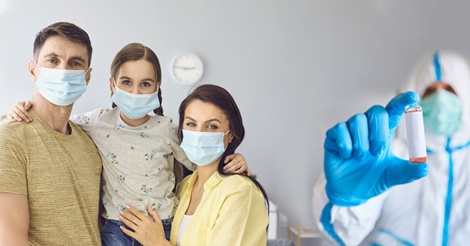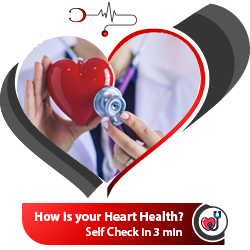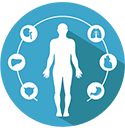Types of Covid-19 Screening Tests
In five months, Coronavirus has affected more than 20 million people in the world. Thankfully, we now have more tests that can be used to know past and active infections. These tests can also be used by the health workers, government and scientists to find more about the virus and find a cure or plan mass-level control for it.
To make these tests available and accessible for all, Indus is introducing them in their service. To plan protection and check for active infections, Indus offers the Coronavirus SARS-CoV-2 detection test, Antibody Test and Antigen Testing for Covid-19 screening.

What is SARS-CoV-2 RT PCR test?
RT-PCR test or Real-Time Polymer Chain Reaction Test was the only detection test in the beginning stages of Covid-19. It is done by collecting swabs from the throat and nose of suspected Covid-19 patients. Patient's swab samples are analyzed with reagents to check if they have the Covid-19 virus. This is the widely used test to diagnose active corona infection.
What is Rapid Antibody Test?
Rapid Antibody Test looks for antibodies through a patient’s blood samples. According to ICMR, these tests are majorly for mass analysis and reporting. After the Antibody Test is done, the following strategy needs to be followed:
Positive Antibody Test: assessment, treatment, and isolation should begin for the patients.
Negative Antibody Test: an RT PCR test is required. If RT PCR test is positive, the patient is confirmed to have the infection and needs to follow Covid-19 treatment protocols.
It is an important tool for scientists, government and experts to understand and plan further movement strategies and guidelines for the pandemic period.
What is Antigen Testing?
Antigen Test is the newest coronavirus screening that detects proteins that are parts of the coronavirus. This is done in almost the same method as the RT PCR - that is by using nasal fluid in a swab. Antigen tests are able to give the results quicker than RT PCR and are not as expensive. In case the Antigen Test comes negative, doctors may recommend RT PCR for final reporting, depending on the situation and exposure of the person.
To find a solution to make life normal again as before the Covid-19 pandemic, Antibody and Antigen Tests can be used widely in communities and ultimately help in easing the restrictions to slow/stop the spread of the virus. Also, a better understanding of the population that has recovered from Covid-19 would enable experts to estimate the dynamic and rate of the virus’ spread and design better strategies to safeguard the community. In the meantime, Antibody Testing could play an additional role of confirming people who can donate convalescent plasma, a component of blood that contains antibodies. Know how you can get these tests customized as per your requirements of your family.
| PARAMETER | RT PCR | ANTIGEN | ANTIBODY |
| Detection | Detects the SARS COV genetic material (RNA) | Detects the proteins/antigens in the virus | Detects the antibody produced by the body in response to the virus |
| Report time | 1 to 2 days | Immediate result (about 30 minutes) | Time required for the results-1 day if done by ELISA/CLIA method& |
| Purpose | Detects active & current infection | Detects active & current infection | Detects past infection |
| Accuracy | Very accurate | May require further confirmation | Useful for sero-surveillance and health planning |
| Cost | Expensive | Less expensive | Less expensive |
| Requisites | Requires doctor’s prescription | Requires doctor’s prescription/Aadhar Card | Does not require doctor's prescription |
| Advantages | Useful for individual testing | Useful for mass testing | Useful for mass screening |
| Sample form | Naso/Oropharyngeal swabs | Nasopharyngeal swabs | Blood |
| Sensitivity | Highly sensitive | Moderate sensitivity | Useful for surveillance, not for diagnosis |




